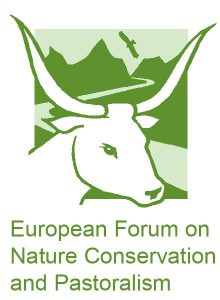 The European Forum on Nature Conservation and Pastoralism (EFNCP) released some country reports on application of the new “green” CAP (Common Agricultural Policy) to permanent pastures in 6 Member States (Bulgaria, Estonia, France, Ireland, Spain and UK). The conclusion of the studies is that “the mainstream CAP instruments in Pillar 1 fail to address the main challenges and even exacerbate the threat of abandonment or damaging actions by farmers in some situations.”
The European Forum on Nature Conservation and Pastoralism (EFNCP) released some country reports on application of the new “green” CAP (Common Agricultural Policy) to permanent pastures in 6 Member States (Bulgaria, Estonia, France, Ireland, Spain and UK). The conclusion of the studies is that “the mainstream CAP instruments in Pillar 1 fail to address the main challenges and even exacerbate the threat of abandonment or damaging actions by farmers in some situations.”
Europe’s permanent pastures are mainly semi-natural and are a major producer of environmental public goods of European farming. Unadapted policy can result to their declining as a result of intensification (especially reseeding and heavy fertilisation of meadows) but mainly due to abandonment and afforestation.
Guy Beaufoy, Senior Policy Manager of EFNCP, reported that the eligibility rules to receive CAP support for pastures with trees and shrubs were too bureaucratic for Member States to implement: “since 2005 the support has shifted to payments per hectare, with new and complicated rules that discriminate against pastures with trees and shrubs”. In result, policy incentives encourage farmers to remove trees and shrubs, to abandon the pastures or to convert them to forestry use.
More information can be found in the article of ARC 2020 and the news post of EFNCP on the topic.
In response to this problem, the EFNCP launched the ‘Wood Pastures Manifesto for Urgent Change to the CAP’. More information about it can be found here.
Stimulating the delivery of public good is one of the goals of the H2020 project Pegasus, in which Euromontana is involved. Pegasus aims to develop innovative and practical ways of making public goods and ecosystem services concepts accessible and operational. To know more about Pegasus, please click here.
6 April 2016









